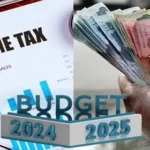Bilawal Bhutto Zardari, the chairman of the Pakistan Peoples’ Party (PPP), has announced his candidacy for the prime ministership of Pakistan. The scion of the Bhutto-Zardari political dynasty, Bilawal’s decision to vie for the top office has generated considerable buzz and speculation in the political arena.
Bilawal hails from a family deeply entrenched in Pakistani politics, with both of his parents, Asif Ali Zardari and the late Benazir Bhutto, having assumed the highest offices in the country in the past. As the PPP gears up for the upcoming elections scheduled for February, Bilawal’s candidacy has been endorsed by the party, with his father, Asif Ali Zardari, set to be the presidential nominee.
The political landscape in Pakistan has been undergoing significant shifts, particularly with the decline in political fortunes for former Prime Minister Imran Khan. As Khan faces challenges stemming from establishment conflicts and a crackdown on his Pakistan Tehreek-e-Insaf (PTI) party, Bilawal Bhutto Zardari emerges as a potential candidate who has reportedly proven his “mettle.”
Foreign Minister Bilawal Bhutto Zardari, at the age of 34, has already represented Pakistan on both domestic and global fronts. However, despite his experience, he has not yet gained widespread acceptance among the public. Some analysts note that Bilawal “wouldn’t have shot up to the very senior post of foreign minister without the establishment’s blessing,” indicating a strategic alignment with the country’s influential forces.
The PPP, under Bilawal’s leadership, is expected to attract former members of the national and provincial assemblies who have recently defected from Imran Khan’s PTI party. These defections come in the wake of attacks on sensitive national installations and buildings by PTI activists, following Khan’s arrest in a land scam case.
Barrister Murtaza Wahab, a PPP leader, expressed confidence in Bilawal’s candidacy, stating that the party would secure victory in the upcoming general elections and emphasizing the commitment to address the challenges faced by the masses, including unemployment and crises related to water and gas.
Bilawal Bhutto-Zardari’s election agenda, presented on the death anniversary of his mother Benazir, outlines ambitious promises for the future of Pakistan. Among these promises are doubling salaries within five years, providing 300 units of free solar energy to the poorer sections of society, establishing green energy parks in each district, building three million houses for the poor and flood-affected, and ensuring free healthcare and education for all.
The manifesto also includes plans to expand the Benazir Income Support Programme, introduce more welfare schemes, issue ‘Hari Cards’ for farmers, ‘Youth Cards’ and ‘Youth Markaz’ for unemployed youth, and launch the ‘Bhook Mitao Programme’ to eradicate hunger in the country.
As Bilawal Bhutto Zardari embarks on this political journey, his potential candidacy for prime ministership, backed by the PPP and with a comprehensive election agenda, raises questions about the role of the establishment and the shifting dynamics within Pakistani politics. Whether Bilawal will emerge as the country’s next prime minister remains to be seen, but his candidacy undoubtedly adds a new dimension to the unfolding political narrative in Pakistan.
Author: Faisal Waqas





























